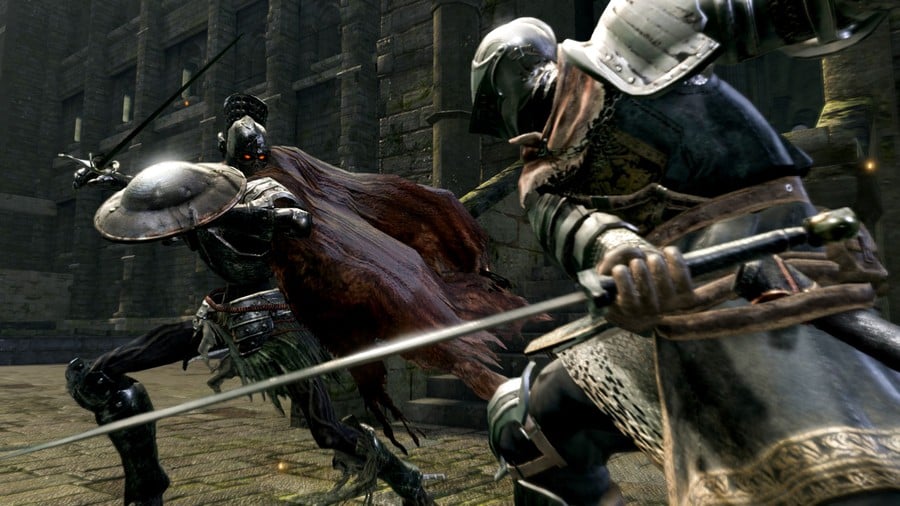
If you've never quite been brave enough to tackle Dark Souls, but have decided to jump in for the first time with the remaster, first of all good for you! Second of all, you're in the right place: figuring out your starting class is exactly where you should start.
When you're done here, you can then move onto these 19 things we wish we'd known before starting Dark Souls Remastered. That way, by the time you boot up the game, it won't feel quite so daunting. Rock hard still, for sure, but a little less imposing.
Subscribe to Push Square on YouTube166k
In this guide we'll teach you what a starting class is, walk you through positives and negatives of each one, and try and help you pinpoint the best one for you. We'll also recommend the best one to start with if you have no idea what you're getting yourself into altogether. Let's do this!
What is a starting class in Dark Souls Remastered?
Your starting class in Dark Souls Remastered determines your character's statistics and equipment at the beginning of the game.
Is your starting class important?
Not really. You can find all of the equipment in the world of Lordran, and a few errant stat points here and there won't do much damage to your overall build.
What's the best starting class?
There's no easy answer to that question, as it depends on the type of character you want to build. Let's take a look at your options:
What's the best melee starting class?
So you want to get up close and personal and batter your enemies from melee range? Good for you. These types of characters come in two different flavours: strength and dexterity.
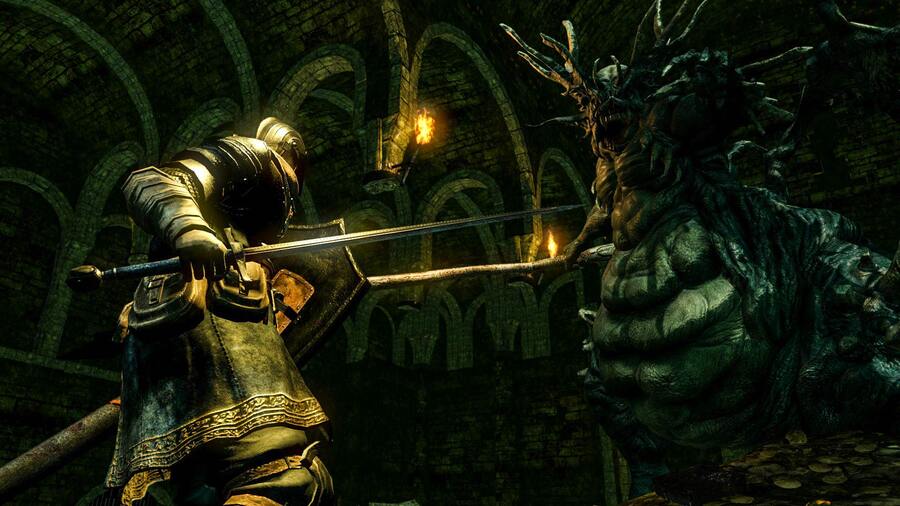
Strength
Strength melee types can use the heaviest weapons and shields, and allow you to take off enormous chunks of health with a single hit. The weapons are slow though, and require a ton of stamina to wield, so you'll have to be sure that your hit will land before swinging or you'll be left wide open for a counter attack.
The upside is, a lot of these heavy weapons can stun or knock down opponents, so as long as you get in first, you should be able to prevent the enemy's attack entirely. You've also got an enormous shield that you can pop up when required to soak up enormous damage entirely.
| Starting Class | Positives | Negatives |
|---|---|---|
| Bandit | - High strength and endurance - Axe is powerful early on |
- Lesser armour - Very low dexterity |
| Warrior | - High strength and dexterity - Excellent armour early on |
- Long Sword is serviceable, but not the best starting weapon |
For strength types, the bandit and Warrior are the best opening classes and there's very little to chose between them. The Bandit has the highest strength and endurance so can wield more powerful weapons right off the bat, and also comes equipped with an axe that deals considerable damage early in the game. The downside is its super low dexterity though. This isn't quite as important for strength types, but it will lock you out of using some excellent early weapons that require higher dexterity unless you pop some points in there.
So it might actually end up being a better idea to roll a Warrior, that has slightly less strength, endurance, and vitality but four more points in dexterity, which will allow you to use a lot of early strength weapons right off the bat. The starting armour is also excellent, and will safely get you through at least half of the game without trouble. The Long Sword isn't terrific though, but is serviceable enough until you find something better.
Dexterity
Dexterity melee types typically attack a lot faster than their strength counterparts, but often at the expense of smaller damage output per hit and a smaller chance to stun or knock down enemies. You'll generally have more stamina to play with though, and more opportunities to dodge between attacks.
Strength types are the best example of risk versus reward. If you manage to hit successfully, you can stun-lock a bunch of enemies until they're toast, but if you fail a hit it can have dire consequences. Dexterity types, on the other hand, are the best option for those that like to play it safe and attack at opportune moments, ready to parry or dodge whenever required.
| Starting Class | Positives | Negatives |
|---|---|---|
| Wanderer | - Scimitar is great early on - Armour has good resistances |
- Low vitality, endurance, and strength - Armour isn't the best against physical damage |
| Thief | - Very high dexterity - Starts with Master Key |
- Very low vitality, endurance, and strength |
| Hunter | - Starts with a bow - Excellent all-round stats |
- Melee weapon will need replacing relatively quickly - No helmet |
| Warrior | - Best armour and solid weapon - Great overall stats |
- Lower dexterity than other classes - Mid-roll rather than fast roll |
Dexterity warriors have a lot more to play with as there are four viable options for a starting class. We would recommend the Hunter as a starting class due to its excellent stats and the fact you start with a bow. The Warrior is also a solid choice though, and brings with it a better melee weapon and armour, though will have to settle for a mid-roll rather than a fast roll when dodging.
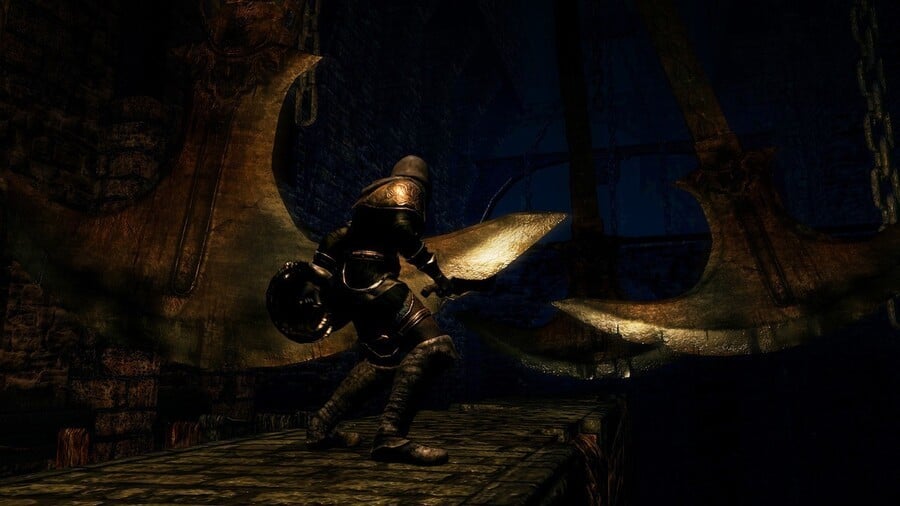
The Wanderer isn't the worst option either. It has the best starting weapon and high resistances, but you'll be playing catch up with the rest of your stats for the opening portion of the game. The same can be said for the Thief, which starts with the Master Key and super high dexterity, but has very poor stats in all other regards.
If you're new to Dark Souls, pick Hunter or Warrior. If this isn't your first rodeo, Wanderer or Thief might prove a bit more interesting to you, but you'll need your skills to make up for its shortcomings.
Why not the Knight?
Let's address the skeleton in the room: the Knight. It's a very attractive option for new players due to its heavy armour and high vitality, but the reality is that you're kind of putting yourself at a disadvantage by selecting it.
Not only do you have low strength and dexterity scores, requiring you to pump lots of points into them at the earliest convenience, you're also just not ready to equip armour that heavy. You'll start the game with a slow roll, and that's just not good enough.
Sure, you could swap to a different armour set as soon as you find one, but it's going to be some time before you find another. And by the time you've got enough endurance to get a mid roll while wearing your starting armour, you'll likely have found a better set anyway.
By all means pick it and look super cool in your knight armour, but we'd strongly recommend that you pick the Warrior instead. It's just better in almost every single way.
What's the best ranged starting class?
Thus begins the shortest section of this guide: the Hunter is the best starting class if you plan on wielding a bow or crossbow for most of the game. Not only does the Hunter have excellent starting stats, it also comes equipped with a bow by default.
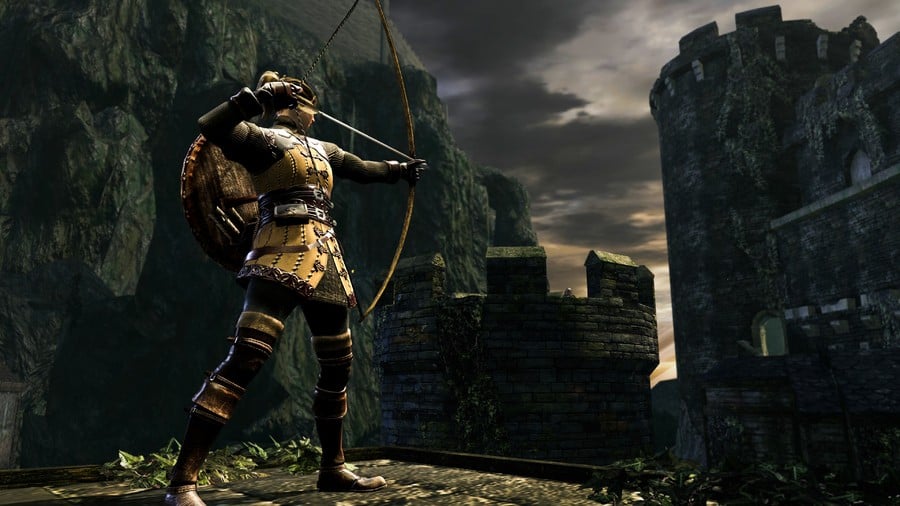
You could also pick any of the other dexterity melee types and grab a bow later in the game, though we'd only recommend this if you want better all round gear. In that instance, the Warrior would be the best choice for newcomers, while the Thief might be better for veterans as the Master Key is quite handy for skipping sections of the game.
What's the best magic starting class?
The best starting class for magic entirely depends on the type of magic you want to cast. There are three types in Dark Souls: Miracles, Sorcery, and Pyromancy.
Miracles require high faith and are mostly healing and defensive in nature, while Sorcery requires High intelligence and is mostly offensive. Pyromancy is an interesting choice because it doesn't scale so much off your stats and instead off a piece of equipment known as a Pyromancy Flame. This allows you to still perform quite well in melee or ranged combat.
| Starting Class | Positives | Negatives |
|---|---|---|
| Sorcerer | - Very high spell damage - Can mask noise, summon light, remove status effects, repair equipment, reinforce shield and weapons, and set up decoys |
- Requires very high attunement and intelligence to wield the best spells, limiting your ability to place points in other stats |
| Pyromancer | - Solid fire damage - Can corrode weapons, reduce fire damage, increase stats, charm nearby enemies, and poison - Doesn't require high faith or intelligence, allowing you to place points in other stats |
- Pyromancy Flame requires considerable upgrades to get the most out of |
| Cleric | - Can heal self and others - Deal solid damage and push others out of the way - Improve defence, return to bonfire, silence enemies |
- Requires very high attunement and intelligence to wield the best spells, limiting your ability to place points in other stats |
It's worth noting at this point though that while you might be tempted to to start with the class associated with your favourite type of magic, you can still specialise in these areas later if you prefer. You can find all spells and class items while out exploring the world.
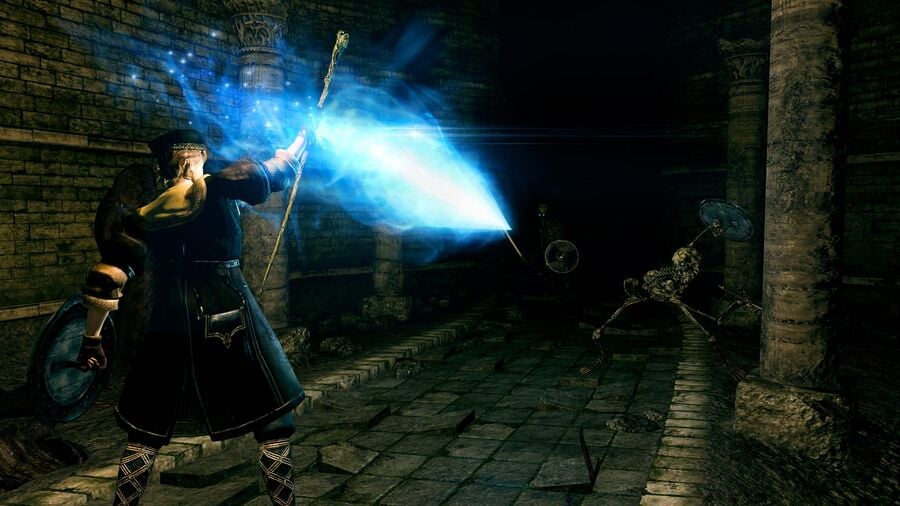
Which class should I pick if I just have no idea what I'm doing?
If this is your absolute first time playing Dark Souls, then we'd encourage you to pick Warrior. You get solid starting stats combined with excellent gear that will carry you through at least half of the game. If you decide later that you'd like to go in a different direction (magic or ranged) then it won't be much of a challenge to start putting stats in the right area, thanks to its strong base stats across the board.
Dark Souls is a game that benefits from multiple run throughs, so don't worry about not getting it quite right on your first run. There's plenty of time to perfect your favourite character next time, and part of the fun is in making these mistakes. Don't beat yourself up about it.





Comments 0
Wow, no comments yet... why not be the first?
Leave A Comment
Hold on there, you need to login to post a comment...